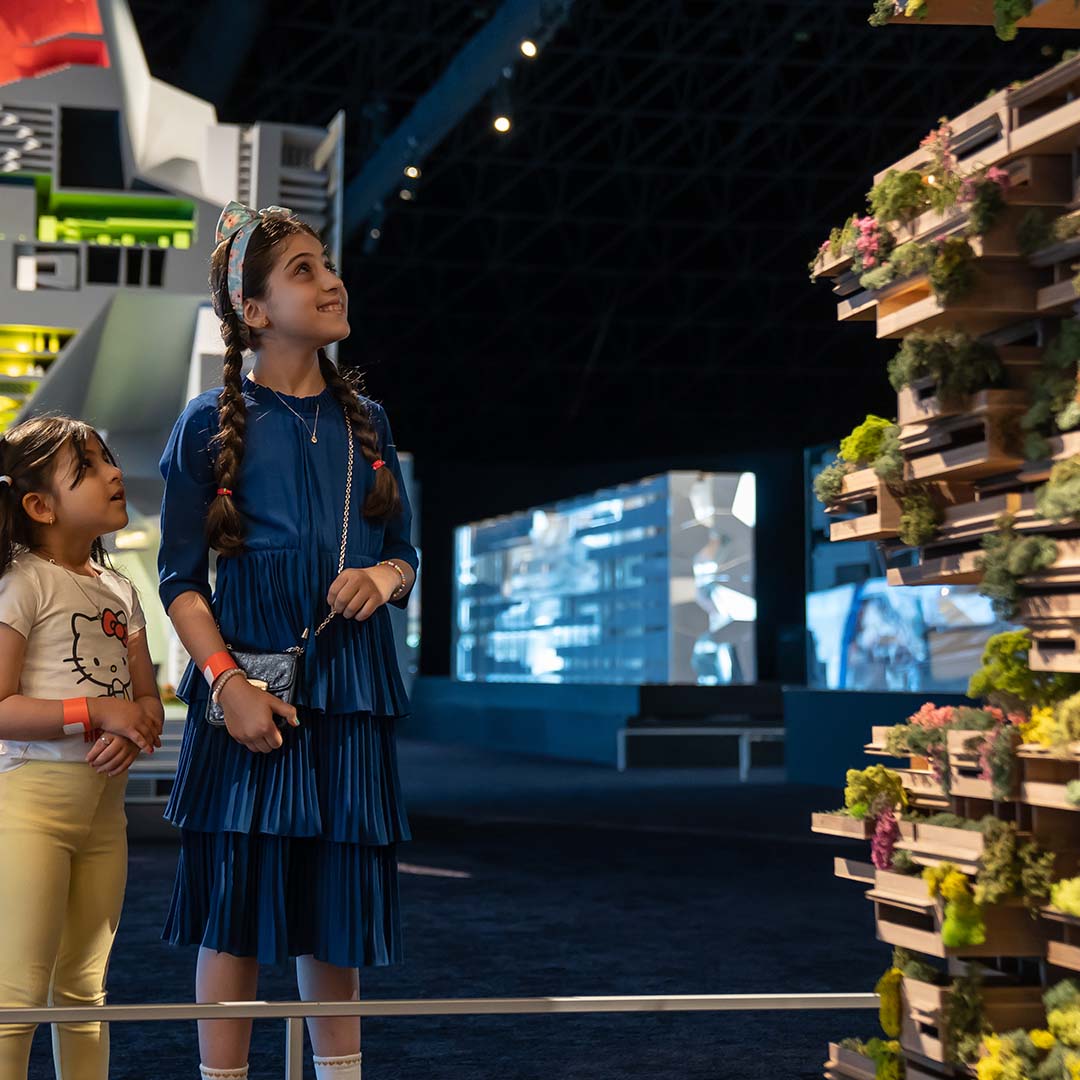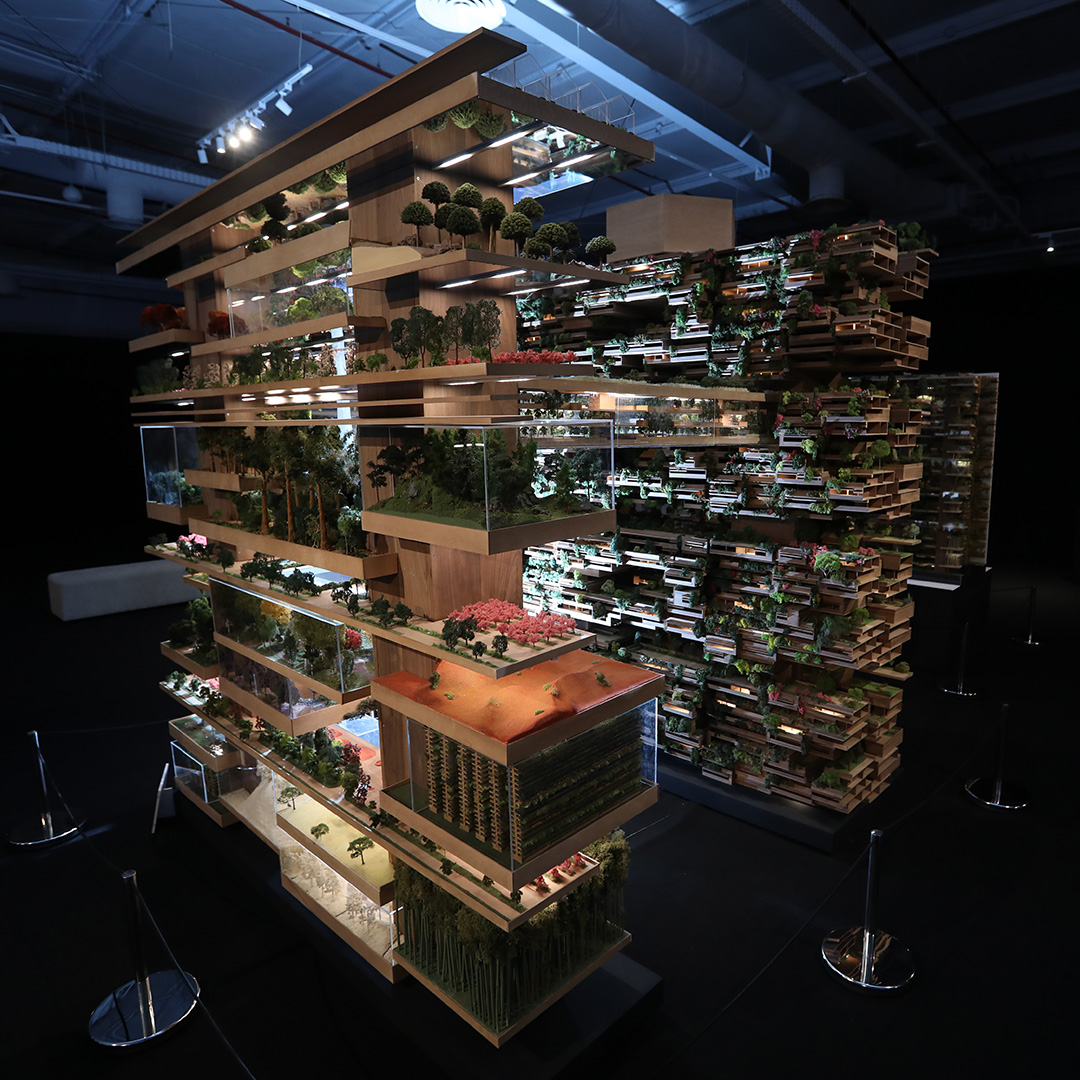Saudi Arabia’s prince Mohammed bin Salman Al Saud has decided to put oil money profits from Saudi Aramco, its national oil company and largest company in the world, to an interesting use: he is building 110-mile long 15-minute city called The Line on the coast of the Red Sea.
Below is a series of renderings of how the The Line will look. The display was put up recently in Riyadh, the capital city and business hub of Saudi Arabia. Until now the project was being built in a manner of secrecy with media outlets like Green Prophet reported on satellite images captured at the building site.

The Line, the linear city, will also be a 15-minute city, an urban planning concept where most of one’s daily necessities such as work, shopping, healthcare, education and leisure can be easily reached by a 15-minute walk or bike ride from any point in your city. (Saudi Arabia is also thinking about implementing a 4-day work week).


Children look at model of The Line, a 15-minute city part of Neom, Saudi Arabia
Healthy cities in Europe like Rotterdam (read here why this Dutch city is so sustainable) and in Jaffa, Israel already do this. But by building one from scratch there is a risk of sanitizing the joy of living in such places which grow organically like an Old Growth Forest. Copying and pasting commercial concepts planned in advance in 15-minute chunks could be risky. Like Masdar learned in the United Arab Emirates, its 15-minute, zero energy city developed by the renewable energy company of the same name, was a flop. A unique design with an incredible lure, the more adventurous among Abu Dhabi’s intrepid tourists may find something endearing about this unrealized dream.
Why conspiracy theorists are against 15-minute cities
Conspiracy theorists, often the same people who are climate change deniers, and against Covid vaccinations aren’t buying the dream of 15-minute city, developed in concept by Professor Carlos Moreno at the Sorbonne in Paris, which has enraged a number of Americans and Canadians who believe that driving your car is a basic right. This is despite the cost of gas directly controlled by Saudi Aramco, the Saudi owned oil company, owned by the Crown Prince and which made a record 161 billion USD in profits last year.
Naysayers are calling the 15-minute city concept a “socialist conspiracy theory” that takes away basic human rights to movement, comparing the idea to Nazi ghettos in Germany. That comparison is highly overused. Loose words spoken in social media today by both the “woke” and the right wing confound and confuse conversations.
I love the idea of 15-minute cities if people will want to live in them.

It is certainly probable that highly socialist countries like my motherland Canada are to blame for emerging interest in 15-minute cities as a cultural and environmental concept. Years ago at the University of Toronto I was shaped by an environmental philosophy course with lectures on “what makes a city healthy”. Strip malls, housing projects, suburbia were deemed unhealthy and unsocial, while mixed-housing streets in the middle of Toronto like Walmer Road where I lived in the Annex, were very much good examples of a healthy city at work and play.

A healthy street and neighborhood should include people from all walks of life: students, the wealthy class, the welfare class, and everything in between and Walmer Road offered that, amazingly so. A laundromat, grocery store, parks, good eats, dog-friendly parks, pubs and my university were within a 15-minute walk. I lived there for 5 years celebrating that I didn’t need a car. My bike filled in for getting places fast closer to Lake Ontario, even in the snow.
When I got older and returned to Toronto I noticed that the dream wasn’t always accessible to all. My cousin bound to a wheelchair is part of a sailing club and can travel to work in her chair but when the sidewalks aren’t ploughed from the snow, she has a problem. When my dad was dying in a hospital in Toronto, it took me more than 15-minutes to go out by foot in the freezing to find him fresh fruit which wasn’t available at the hospital, a dead zone area around the bottom part of the university where it links to the city’s financial heart on Bay Street. Don’t doctors and bankers need fresh fruit?

According to Wired with help from right-wing figures in the US and UK, including the author Jordan Peterson, the 15-minute city concept has become entwined within a much bigger universe of conspiracies based around the idea of a “Great Reset” that will see people locked in their homes by climate-obsessed autocracies.


Being locked down in my opinion is only a state of mind (our carbon-based bodies are already trapped on earth and are forced to breath, eat, sleep), and living in a 15-minute city will make people much happier if done right. Imagine grandmothers living within walking distance to their grandkids. Kids who can wild range roam like they live in a kibbutz? I live in a 15-minute city in Jaffa, Israel. Now that my kids are older they get around fine by now although the electric bikes make it unsafe for them to use bike lanes.
I shop on foot, get to my college classes by a short 10-minute bike ride. My health services, rarely used, is 10-minutes by foot and I know the names of the people who run the corner stores. This is opposed to living the American dream in Los Angeles, driving to everywhere and shopping at big box shops on the cheap.

